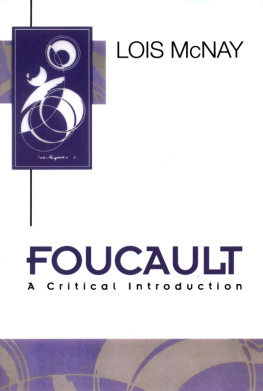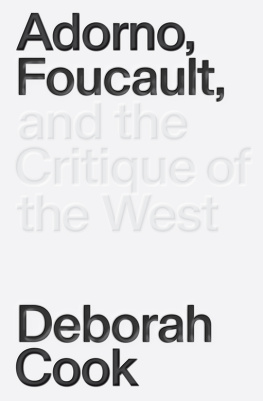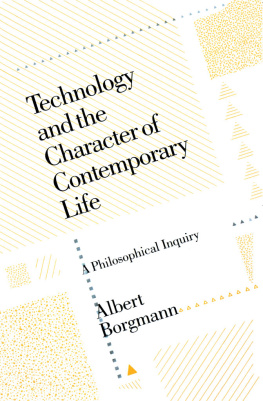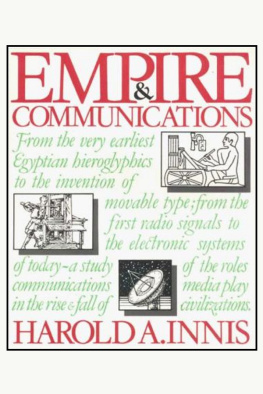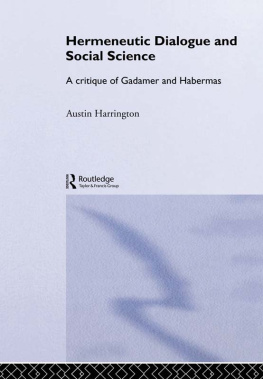ROUTLEDGE LIBRARY EDITIONS: COMMUNICATION STUDIES
Volume 5
POWERMATICS
POWERMATICS
A discursive critique of new communications technology
MARIKE FINLAY-DE MONCHY
First published in 1987 by Routledge & Kegan Paul Ltd
This edition first published in 2016
by Routledge
2 Park Square, Milton Park, Abingdon, Oxon OX14 4RN
and by Routledge
711 Third Avenue, New York, NY 10017
Routledge is an imprint of the Taylor & Francis Group, an informa business
1987 Marike Finlay
All rights reserved. No part of this book may be reprinted or reproduced or utilised in any form or by any electronic, mechanical, or other means, now known or hereafter invented, including photocopying and recording, or in any information storage or retrieval system, without permission in writing from the publishers.
Trademark notice: Product or corporate names may be trademarks or registered trademarks, and are used only for identification and explanation without intent to infringe.
British Library Cataloguing in Publication Data
A catalogue record for this book is available from the British Library
ISBN: 978-1-138-93903-5 (Set)
ISBN: 978-1-315-67052-2 (Set) (ebk)
ISBN: 978-1-138-94674-3 (Volume 5) (hbk)
ISBN: 978-1-315-67048-5 (Volume 5) (ebk)
Publishers Note
The publisher has gone to great lengths to ensure the quality of this reprint but points out that some imperfections in the original copies may be apparent.
Disclaimer
The publisher has made every effort to trace copyright holders and would welcome correspondence from those they have been unable to trace.
MARIKE FINLAY
Powermatics
A discursive critique of new communications technology
First published in 1987 by
Routledge & Kegan Paul Ltd
11 New Fetter Lane, London EC4P 4EE
Published in the USA by
Routledge & Kegan Paul Inc.
in association with Methuen Inc.
29 West 35th Street, New York, NY 10001
Set in Times New Roman
by Pentacor Ltd
and printed in Great Britain
by T.J. Press (Padstow) Ltd
Marike Finlay 1987
No part of this book may be reproduced in any form without permission from the publisher except for the quotation of brief passages in criticism
Library of Congress Cataloging in Publication Data
Finlay, Marike.
Powermatics: a discursive critique of new communications technology.
(International library of phenomenology and moral science)
Bibliography; p.
Includes index.
1. CommunicationTechnological innovations. 2. CommunicationPhilosophy. 3. CommunicationSocial aspects. 4. Discourse analysis. 5. Power (Social sciences) 6. Knowledge, Theory of. I. Title. II. Series.
P96. T42F56 1987 001.51 8631524
British Library CIP Data also available
ISBN 0710207611
For Ramn
CONTENTS
5.2.1 Disintegration
I wish to acknowledge gratefully two generous research grants from the McGill University Humanities Research Grants Sub-Committee which made possible the word-processing of the final version of this book.
I would also like to thank the following people for their constructive readings and criticisms throughout the conceptualization, writing, and revision of the work: Kevin Wilson, Morag Shiach, Karin Holland Biggs, Professor Timothy Reiss, Professor George Szanto, and the members of the CIMED Centre Interuniversitaire pour lEtude du Discours Social led by Professor Marc Angenot.
While researching and writing this book I conducted three graduate seminars on the topic at McGill University. Much credit is due to the students who participated actively in these seminars. They have proven to be a constant source of inspiration, archival information, and devils advocacy.
Special gratitude is owing to Paul Attallah who edited and formatted this work on the word processor with generosity, intelligence, talent, and conscientiousness. Donna Gill helped greatly with her diligent editorial work on the bibliography and notes.
Also, were it not for John Rostons good-humored help, the conceit of word-processing a critique of communications technology would not have been possible or would, at the very least, have been far more painful.
Finally, Ramn Pelinski has graciously suffered to live with the manic flow of elations and miseries that characterize the moods of scholars in the throes of writing a book such as this. This ones for you Ramn.
Introduction
We are on the threshold of a communications revolution, an information society, a technetronic age, a post-industrialist society, a knowledge-based economy, () All of these phrases refer endlessly to the conviction, now rampant amongst academics, politicians, and journalists alike, that some fundamentally revolutionary change is occurring in our society and that information and/or communication (the two not always being distinguished) is at the root of it. The deployment and development of what is called new communications technology, more specifically of electronic equipment for linking computers and telecommunications systems into networks, is seen to be at the foundation of this new society. These declarations are also always accompanied by numerous futurist declarations concerning the inevitable social impacts of this change: the end of ideology, the third wave, disemployment, bio-genetic hybrid populations, an age of leisure, a return to feudal-style cottage industry, and so on.
This book explores those propositions, shows the interests and forces that subtend and motivate them, the forms of reasoning which underpin them and which they propagate, and formulates a critique of this way of talking about new communications technology. In short, this book undertakes a discourse analysis of new communications technology.
What is discourse analysis and why is it appropriate to the study of new communications technology? Stated in its briefest, most simple form, discourse analysis is the study of the way in which an object or idea, any object or idea, is taken up by various institutions and epistemological positions, and of the way in which those institutions and positions treat it. Discourse analysis studies the way in which objects or ideas are spoken about. New communications technology is one such object/idea.
Let us give one brief example. The computer is no doubt the single most important element in the field of new communications technology. It is the machine upon which everything else, increased productivity and efficiency, telecommunications hookups, networking patterns, data storage and transfer, etc., depends. Given its centrality, it might also be granted that there can exist a number of ways of talking about the computer. One could adopt a luddite position and condemn the machine for what it will do to existing social structures. One could say that the machine is fundamentally irrelevant because it has nothing to say about the important existential questions of the day. One could say that, on the contrary, the computer brings with it certain capabilities that will allow us to reorder our lives, to delegate certain uninteresting tasks to it in order to free up our lives for more leisure time. One could talk about the changes it will bring about or allow in any number of fields, such as health care, education, banking, and so on.


